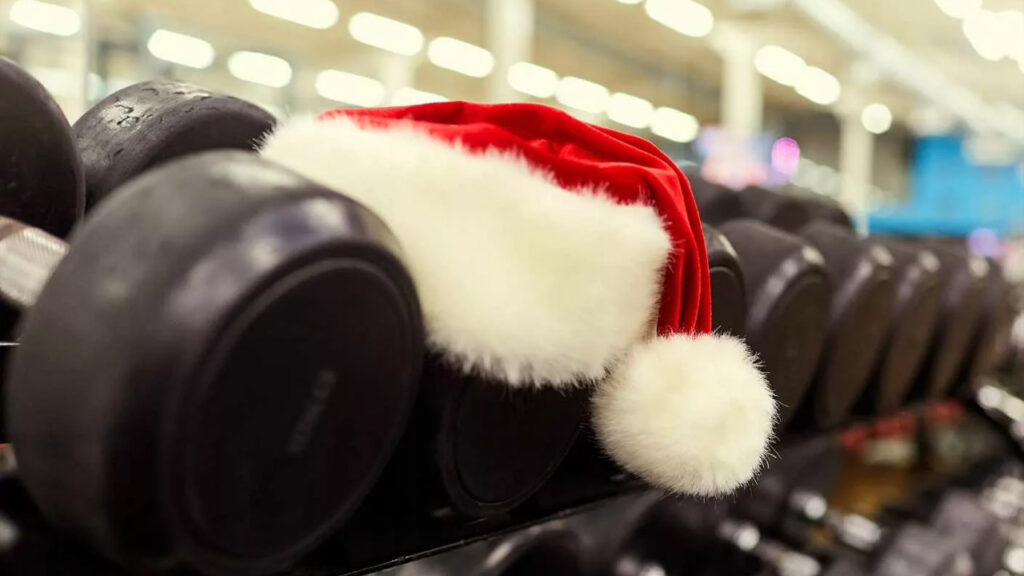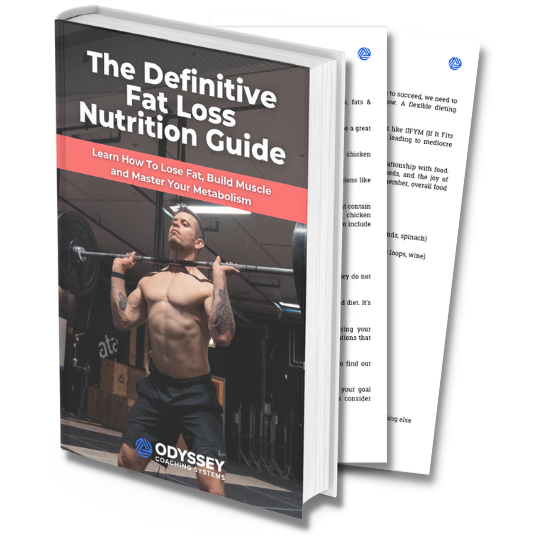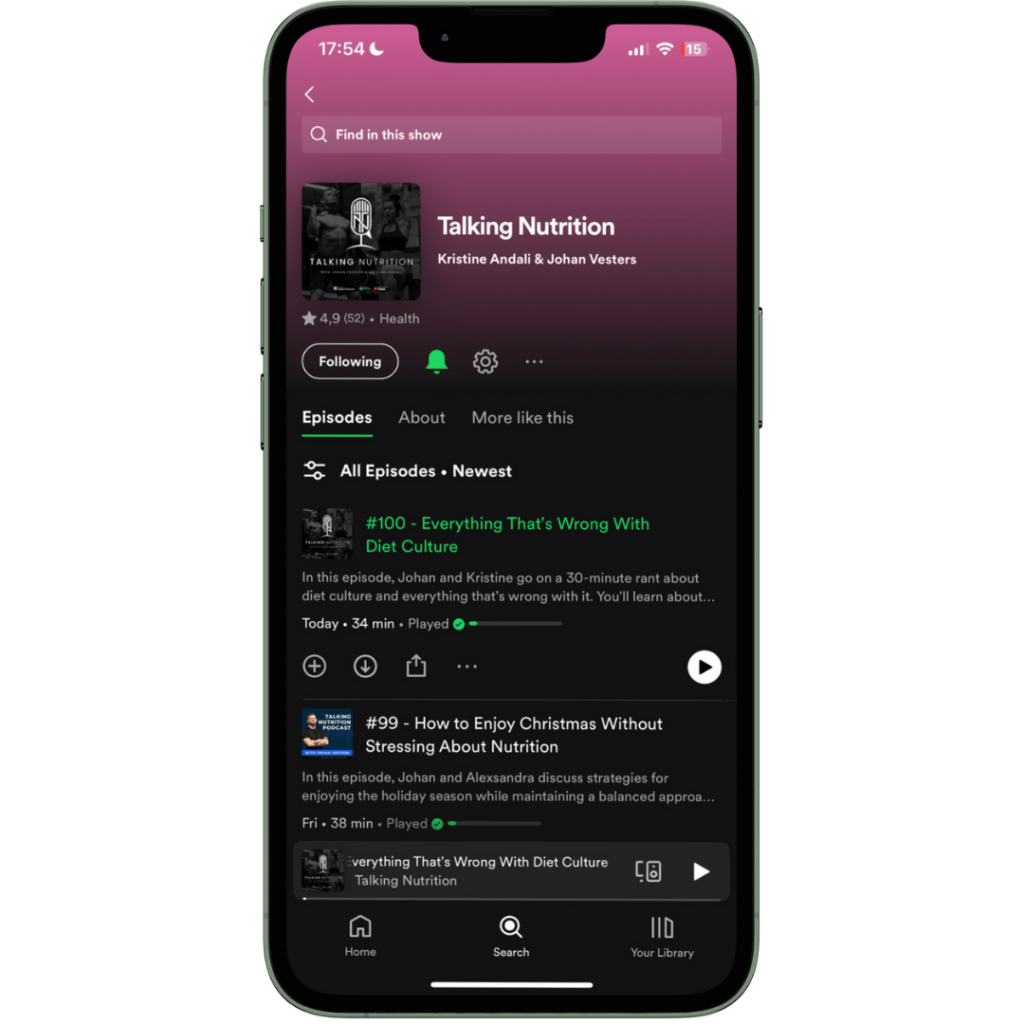Main Take-Aways
1. You (probably) don’t need nor want to be dieting during the holiday season. Plan ahead and periodize your nutrition so that you’ll be at maintenance or even in a muscle building phase.
2. Sustainable nutrition is all about including events like the holidays, and allowing for flexibility in moderation while keeping up your most important healthy habits.
3. ‘The holidays’ are really just a handful of days that include a handful of bigger meals. The tips and tactics we’ll talk about can prove very useful. However when holi-DAYS turn into weeks or even a month or more of uncontrolled feasting and snacking, then they’ll likely do very little.
Avoiding Holiday Weight Gain. Is It Really Possible?
It’s that time of the year.
Maria Carey is out of hibernation and soon enough that holiday-induced stress and anxiety will make its comeback too.
As much as the holidays are a great time to eat tasty food and spend time with your loved ones, very few people do not get stressed about their nutrition during the holidays.
Many people go in worried and anxious, knowing from previous years that they tend to overeat and gain weight.
You’re not in charge of preparing all of your own meals, you don’t even know what’s being served, you just don’t know how to control yourself in these scenarios..
Maybe you’re a true New-Years-Resolutioner and want to wait until after the holidays. Which is totally cool by the way! I’m not going to tell you not to wait with your diet, if anything you likely made the right decision there.
However, that waiting does often come with an ‘I’m going to reward myself’ mindset. You worked hard this year, you need and deserve that break. You’re going to diet in January, so you’re going to let everything go over the holidays ‘while you still can’.
Regardless of your plans, goals and feelings around the holidays, this article should help you prepare and go in with the right mindset and expectations.
Let’s do some reflecting first, then we’ll talk about planning, and finally we’ll get into avoiding holiday weight gain.
That way you can get through these couple of months stress-free, without unnecessary setbacks, meaning you’ll already begin the new year with a head start.
Reflection and awareness
The end of the year is a great time to reflect.
You get to remember the good times, your favorite moments.. but also the goals you set for yourself last January.
This is where you either get an extra boost of motivation, because you did what you said you would. You committed yourself to your goals, and now you get to reap the rewards.
Or.. you feel bummed because things didn’t go the way you expected.
You wanted to lose weight, but..
You wanted to do X, but..
As hard as these moments can be, try to sit with that uncomfortable feeling for a moment. Because this is not a bad thing, and by no means should this be a reason to go ‘oh well, might as well go into F-it mode for the rest of the year’.
Change begins with awareness.
Don’t beat yourself up about what didn’t go well. Instead, write it down. It’s super valuable to know that stuff! Because you now know exactly what needs to be done to move forward.
Here are a few questions you can help you reflect and come up with a plan for the new year:
- What did I do really well?
- What good stuff from this year do you want to bring into the next?
- What do I want to change/improve on?
- How will I make that happen?
Expectations and plans going into the holidays
Before we can even decide on what’s the best way to manage your nutrition during the holiday season, we need to bring it back to the very foundation of your goals:
Energy balance.
At the end of the day, it’s the balance of the calories you eat vs the calories you burn that determines if you lose, gain, or maintain weight.
Now the cool thing is that you get to decide on what season – in fancy words: periodization phase – you want to be in.
To give you an idea: pretty much all of our online weight loss clients move out of their dieting phase at the end of the year. They don’t need nor want to be dieting during the holiday season.
So we plan for a break at maintenance, or even a slight calorie surplus, ahead of time. That way there are more calories to play with and there’s more room for food and flexibility.
That way you also get a mental break from dieting, your body can use the extra calories to build muscle, and your metabolism gets a chance to recover and speed up.
You see, planning for the different seasons of nutrition is key.
It helps you reach your goals, but also allows you to stress less around the holidays.
So start there. Are you planning to be in a deficit (not recommended for 9/10 people) , at maintenance, or in a surplus?
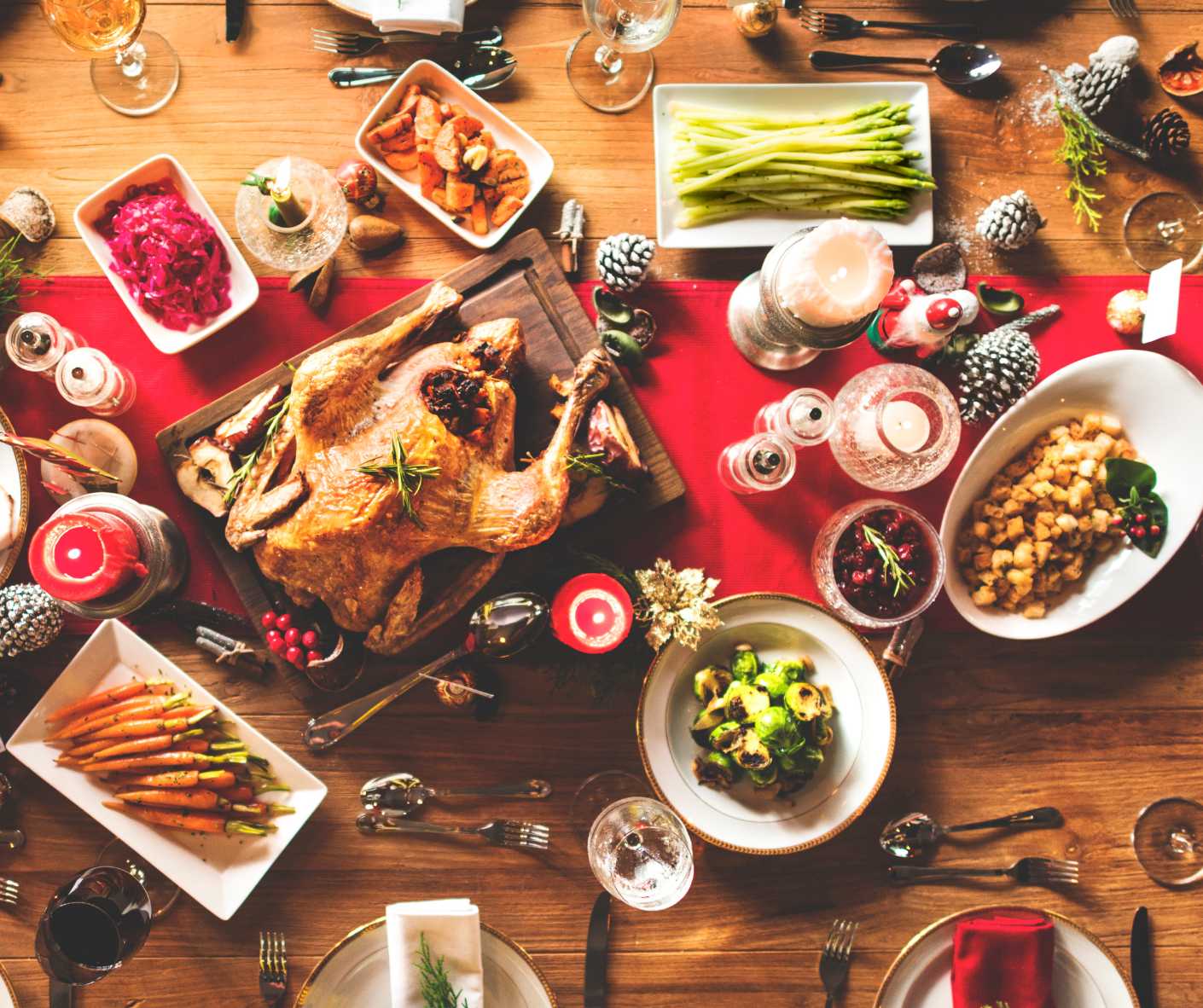
How to avoid weight gain during the holidays
More room for food and flexibility doesn’t mean the principle of energy balance goes out the door.
You have a certain budget of calories to spend, whether you track your macros or not.
If you go over your budget too much, you will gain body fat. That’s not to scare you, but objectively speaking that is what will happen.
Sustainable nutrition is all about including events like the holidays, and allowing for flexibility in moderation while keeping up your most important healthy habits.
Avoiding Holiday Weight Gain – 9 Effective Tactics:
- Choose your daily meal/snack frequency, include a portion of protein with every feeding, and stick to your chosen amount of meals for the day. If you know you’re going to have a big meal later on, where you go for seconds, then that meal probably counts as two
- Drink plenty of water throughout the day. Minimize high-calorie drinks like regular sodas, and keep alcohol (7 calories per gram) to a moderate amount. That’s not to say you shouldn’t drink, but it does also count towards your budget. A great strategy could be allowing yourself 2-3 glasses for the evening.
- Stay active so that your body puts the extra energy (calories) to good use. Lift your weights, get a good session in. Or just go for a nice long walk/hike. While you’re at it, bring your friends or family members and turn it into something you can enjoy together.
- If you know you’re going big in the evening. Especially if you usually go for seconds, you can allow for that by sticking to lower calorie, filling foods during the day. Just keep your protein nice and high and keep your fruits and veggies in. Lower your carbs (4 calories per gram) and fats (9 calories per gram) to save calories for later. Important: do not take this out of context. If you overdo this it can backfire.
- You can also compensate a day or two ahead of time, it’s all just a matter of managing your budget. However again it is important here to NOT restrict yourself too much.
- Some form of intermittent fasting can also be used to lower calories earlier in the day. I’d only advise doing this if you have a very good relationship to food and are somewhat experienced. Because as we talked about in this podcast episode, it can increase the risk of binge-eating.
- Eat slowly and mindfully to enjoy your food more. This also gives your body and brain more time to communicate, so you can follow your natural fullness cues a little better. Plus, it improves digestion.
- Eat your proteins and veggies first, then eat until you’re full (not stuffed). By eating the most filling foods (that are high in protein and fiber) first you are less likely to overeat.
- Go for a (short) walk after your main meal, this helps digestion and you’ll feel less lethargic afterwards.

Setting your non-negotiables
Now this list isn’t all-inclusive, and I’ll probably add more eventually. But you don’t have to try and apply all of the above mentioned tactics at once.
My goal with this article is to equip you with a handful of easy and useful tools that can help you get the most out of your holiday season.
At the end of the day you know best what’s best for you. So try out a few different tactics to see what works best for you (this might take some trial and error, and that’s ok).
Set yourself 1-3 daily non-negotiables for the day. 1-3 daily goals. Once you’ve ticked those boxes, you’re good, you win the day.
Your non-negotiables can be the same every day of the week, or they can differ from day-to-day. Again, it’s going to be up to you.
The idea here is to just get a few important actions done for the day, without you having to be very diligent with your nutrition.
Perfection is not the goal.
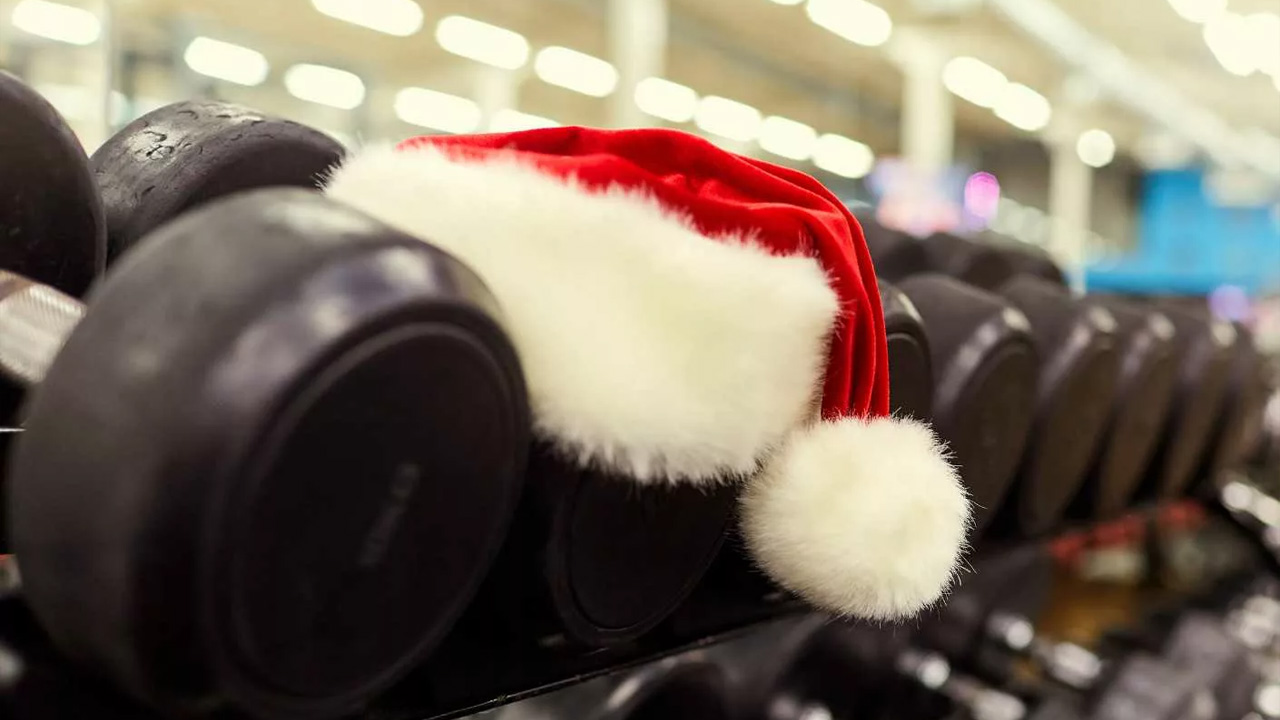
The best way to get back on track
Time for some real talk.
First of all, the scale will probably still be up at least a little bit. It’s to be expected, but is not necessarily a bad thing. A lot of short term weight gain is often due to having had more and/or different types of food, your digestion being a little off, and with all that some water retention. It often comes back down within a few days.
Second, ‘the holidays’ are really just a handful of days that include a handful of bigger meals. The tips and tactics we talked about today can prove very useful. However when holi-DAYS turn into weeks or even a month or more of uncontrolled feasting and snacking, then they’ll likely do very little.
That being said, all you need to do after a festive day is to just get back to the usual.
No punishment by extended restriction or trying to ‘burn off’ the extra calories. You just eat normal and get back to your nutrition, steps and workouts.
The holidays, first and foremost, are there to celebrate and to enjoy good food with your friends and family.
It’s the perfect time to take your foot off the gas after a busy year, but also to learn the valuable lesson that is including flexibility and making the odd festivities part of your nutrition.
While now is probably not the best time to start a diet, it is still a great time to begin building some healthy habits.


